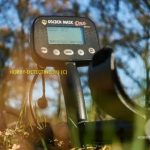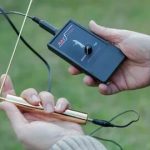-
New Technology Unveiled: Metal Detector Detector

Metal Detector Detector: A New Technological Breakthrough Metal detectors are an important tool used in various settings, from security checkpoints to arc…
-
Uncovering Hidden Treasures: The Best Metal Detectors for Gold

Metal detectors for gold have become a popular tool for treasure hunters and prospectors alike. With the right equipment, uncovering hidden treasures can b…
Search
About
Lorem Ipsum has been the industrys standard dummy text ever since the 1500s, when an unknown prmontserrat took a galley of type and scrambled it to make a type specimen book.
Lorem Ipsum has been the industrys standard dummy text ever since the 1500s, when an unknown prmontserrat took a galley of type and scrambled it to make a type specimen book. It has survived not only five centuries, but also the leap into electronic typesetting, remaining essentially unchanged.
Archive
Categories
Recent Posts
Tags
استخراج الذهب من الجبال استخراج الذهب من الرامات استخراج الذهب من الصخور استخراج المعادن من باطن الارض استخلاص الذهب بالخل استخلاص الذهب بالسيانيد استخلاص الذهب بالفحم استخلاص الذهب بالكربون استخلاص الذهب بالنشا اشكال المعدن تراب الذهب الخام تنقية الذهب من التراب طرق استخراج المعادن pdf طريقة استخلاص الذهب بالكلور طريقة استخلاص الذهب بالماء الملكي
Gallery












